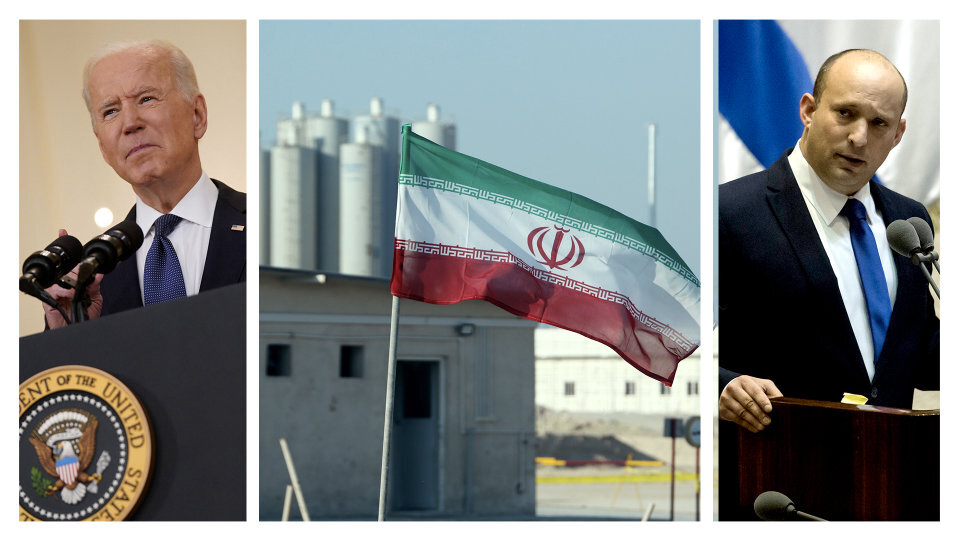Israeli bluff

TEHRAN – Iran’s chief negotiator arrived in Vienna on Saturday, two days before the official date for resuming the much-awaited Vienna talks. concurrently, Israel doubled down on hostile rhetoric.
Immediately after concluding a regional tour, Ali Bagheri Kani, the deputy foreign minister of Iran who will lead the Iranian negotiating team in Vienna, landed in the Austrian capital amid a charged atmosphere characterized by Israeli military threats against Iran.
Diplomats from Iran and the P4+1 group of countries – Russia, China, France, and the UK plus Germany – will gather in Vienna on Monday to resume talks mostly aimed at removing U.S. sanctions on Iran.
While Iran and other negotiating partners are descending on Vienna with realistic views on the prospect of reaching a sort of agreement, Israeli officials started aiming high and upping the ante. They openly warned the U.S. against returning to the original 2015 nuclear deal, officially known as the Joint Comprehensive Plan of Action (JCPOA), and threatened Iran with destructive strikes.
Israeli former and current officials have joined forces to create a sense of madness in a bid to influence the Vienna talks. To this end, they continue to make unfounded allegations about Iran developing a nuclear weapon in a certain period of time and threaten Iran with a military strike.
Yossi Cohen, former head of the Mossad spy agency, called on the Israeli government to seriously consider the option of an Israeli military strike on Iran’s nuclear facilities.
“Independent strikes on nuclear sites, if Iran takes this path that endangers our existence, should and must be on the table — unequivocally,” Cohen told the Ynet news site. He added, “The bottom line is that we must take away the [nuclear] capabilities from Iran because we will not be able to take away its motivations.”
Ram Ben-Barak, chairman of the Knesset’s Foreign Affairs and Defense Committee and former deputy head of the Mossad, warned against reaching a deal similar to the JCPOA. “This is unacceptable for Israel. We are warning the Americans against this and telling them that we will not put up with it,” Ben-Barak told Army Radio, according to the Times of Israel.
Ben-Barak, like Cohen, also said military strikes are being considered, but “should only be used when there is no choice.”
The Israeli bluster comes at a time when the negotiating partners in Vienna are expected to face a tough time hammering out a deal to clean the mess the former U.S. administration left.
Many believe that the Israeli threats against Iran are intended to force Iran into making more concessions at the talks and that the U.S. is not unhappy with the Israelis.
Strikingly, even some Israeli observers seem to not believe the row between Tel Aviv and Washington.
For instance, a prominent Israeli expert told the Saudi-owned Asharq Al Awsat newspaper that the rift between Washington is not deep. “If there are differences, they are minor and superficial. They are in great and deep coordination,” the Israeli expert said, adding, “I am confident that the position of each complements the other, as in a musical piece.
They hold the same opinion about the Iranian threat, and their position reinforces the other.”
Apart from what observers say, Israel’s military capabilities are subject to many determinants that severely limit its options with regard to a military strike against Iran. And even the most hawkish experts in the U.S. believe that an Israeli strike is “doubtful” at best.
“The notion that Israel can come to the rescue with a military strike is also doubtful. Jerusalem has had its share of tough-talking prime ministers, but so far it has relied on sabotage and targeted assassinations to stall Iran’s nuclear program,” Ray Takeyh, a senior fellow for Middle East Studies at the Council on Foreign Relations, and Reuel Marc Gerecht, a senior fellow at the Foundation for Defense of Democracies, wrote in a recent opinion piece for the Wall Street Journal.
Israel may count on its newfound Arab friends in the Persian Gulf but it can be said as a foregone conclusion that no one in the region is willing to bear the brunt of Israel’s adventurism.
Israel seems to be aware that it is isolated on Iran. And this may be the underlying reason why the Israelis restlessly feed world media with firebrand statements against Iran. At the end of the day, the price of fiery statements is much less than destructive wars.
Leave a Comment